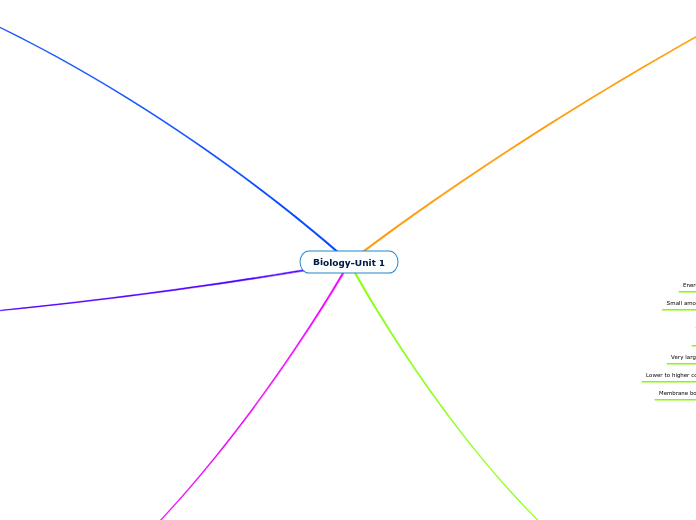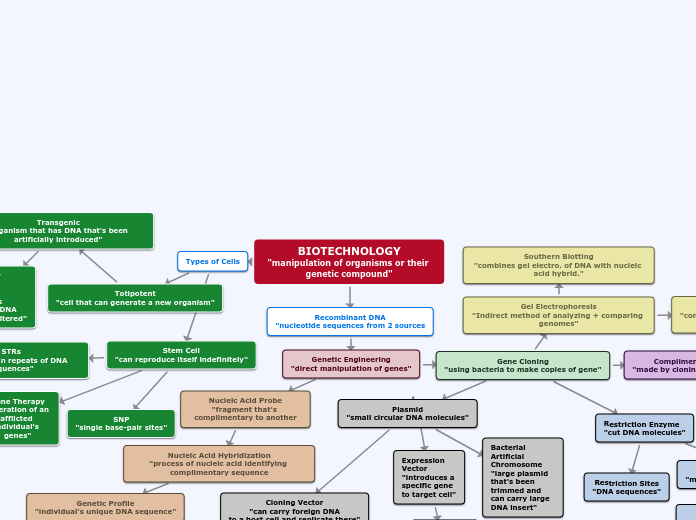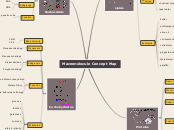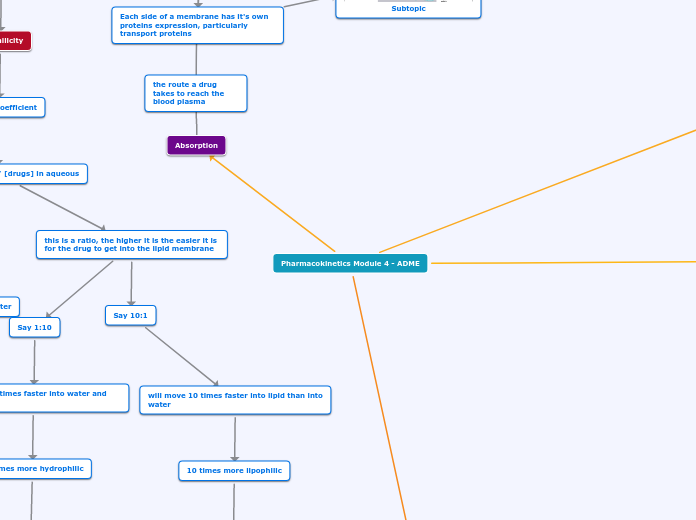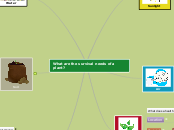Biology-Unit 1
Cells/Organelles
Animal cells
Chentorlie
lysosomes
Organells in Plant/Animal cells
Nuclues
Vesiles
Cytoplasm
Ribosomes
Rough ER
Mitocondria
Vacoules
Cell Membrane
Golgi Apperatus
Smooth ER
Cytoskelenton
Plant Cells
Chloroplast
Cell Wall
Cell Transport
Active Transport
Low to high concentration
Membrane bound Protine
Bulk Transport
Membrane bound protine
Lower to higher concentration
Very large molecules
Endocytosis
Exocytosis
Small amount of fluids
Energy Required
Passive transport
Osmosis
Water
Facilitated Diffusion
Membrane Bound protine
Large Molecules
Higher to lower concentration
Ions
Simple Diffusion
Small Molecules
Small Lipids
Higher concentration to low Concentration
No Energy
Energy in the cell
ATP
nucleotide
made of Adenosine and phostpate
Chemecial recation that makes a burst of energy
ADP
Andonesion dephospite
Glocuse molecule= 36 ATP
6 waters produced
6 carbon dixiodied produced
6 oxygen consumed
Cellulair Aerobatic Resperation
Oxidative resperation
Glycosis
Fermantation
Lactic fermentation
Pryuvate forms lactic acid
Produces fewer ATP cells per glocuse molecule
Human Muscle cells
Alcholic Fermentation
Pyrvate is converted to
Carbon dixide
Ethonal
Photosynsis
Glocuse
Plants make more oxygen then what they use
Uses glocuse fot cellulair resperation
Light energy
Macro Moleclues
Protines
Protines have the most jobs in a cell
Enzymes
Enzymes Inhibator
Carries oxygen in blood
Controls what exits and enters the cells in the membrane
Carbohydrates
Monosaccharides
Disaccharides
Trisaccahrides
Nuclec Acids
DNA
RNA
Estentail Waters
Hydrophillic
Hydrophobic
Water is a reactent
Water is esstentail to life
Water is a Polar Moleclue
Organic componds
Subtopic
Lipids
Triglycerides
Phospholipids
Steriods
Complex Carbs
Polymers
Several Hundered to several thousand monosaccarides
Polysaccirides
Starch- in plants
Glycogen- In humans
Amino Acids
peptide bonds
Centeral carbon bondes with four atoms to form Amino Acids
Cell Theroy
Prokaryotes
Cellular/Uncellular
Bacteria/ Viruses
No to few Organelles
Has no Nuclues
Macro Biology
The study of living things seen through the human eye
Large molecules
3.All cells come from preexisting cells.
2.The cell is the basic unit of structure and organization in organisms.
1.All living things are composed to one or more cells
Eukayotes
Cellular
Has organelles
Has a Nuclues
Uncellular
Micro Biology
The study of microscopic organisms
Bacteria/viruses
Small molecules
